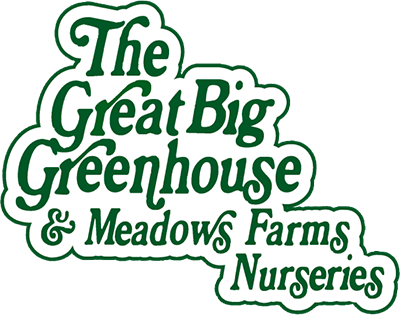One of the big “catch-phrases” you hear a lot is “sustainable” gardening. What is sustainable gardening exactly?
The goal of sustainable gardening is to leave the environment in the same or in better shape than it already was—and to try to use as few products as possible to keep it that way
Remember water is a valuable resource
Water trees, shrubs, and lawns only when they need it. The Virginia Cooperative Extension Office recommends one inch of water once a week for established lawns and shrubs. Set up a rain gauge to measure how much rain has fallen before you water, so you don’t water unless it’s needed. Obviously, young plants and new plantings will need watering more often.
Water lawns, shrubs, etc., early in the day so less water is lost to evaporation. Strategically place sprinklers so places that don’t need water don’t get it. (Note to my neighbor here: Your driveway does NOT need water). Use soaker hoses in vegetable and flower gardens so there is less evaporation, and use some mulch to further reduce watering needs. Consider adding a rain barrel or two.
Introduce native plants into the landscape, where possible
Because they’re native to our area, they’re easier to grow and maintain, and they help to make your yard wildlife-friendly. They provide food and cover for birds. Encouraging birds to hang around is good for more than one reason. Not only are they fun to watch, but they eat plenty of insects, thereby reducing the need for pesticides. By the way, incorporate a birdbath, too.
Plant fruits and vegetables
Plant fruits and vegetables so you and your family eat fresh and local, and that will help decrease the need to have food shipped in. Did you know most produce at the grocery store travels an average of 3,000 miles to get there? That uses vast amounts of fossil fuels and huge quantities of plastic packaging. If you can’t grow it, then shop at a local farmers market.
We can even encourage the humane treatment of animals by buying organic free-range meat, poultry, and eggs—another great reason for shopping your local farmers market.
Use organic controls whenever possible
Try to eliminate chemical impact on your local environment by using organic controls whenever possible—and by reading the label directions so you thoroughly understand how to use those products and how much to use. Remember, even an organic pesticide can kill beneficial insects so make sure to apply just before dark so the bees and butterflies have a chance to go home. And only apply if other controls, such as hand-picking, aren’t working.
Fertilize with organic fertilizers
There are many valid reasons for using organic fertilizers. Chemical fertilizers do give you nitrogen, phosphorus, and potassium, but plants need more than those. There are a host of micro-nutrients plants need that are not in chemical fertilizers but are inorganic fertilizers. Plus organic fertilizers work to improve soil quality overall, improve the movement of water through the soil, and provide food for the beneficial microbes in the soil.
Reusable materials
Compost what can be composted and recycle what can be recycled.
Why Sustainable Gardening is So Important
It’s important to make time to sit on your deck and appreciate the birds at the birdbath and the bees and butterflies around the clover in the backyard—because these are just some of the important reasons sustainable gardening is so worth doing.
Questions? We’re Here for You!
If you have questions about organic products, such as fertilizers, pesticides, etc. we’re here to answer them!


We want to get a birdbath but won’t it encourage mosquito larvae?
You’re supposed to change the water in the birdbath every day. I just shoot the hose at mine. If you change the water everyday, you will NOT have mosquito larvae…and you’ll have happy birds!
Is the spray used by commercial mosquito extermination companies harmful to my plants and veggies?
Bruce, you’ll need to ask the company what they use and Google it. Do understand that, while it shouldn’t hurt your plants, any pesticide used that will kill mosquitoes may well kill honey bees, butterflies, lightning bugs, etc. Ask the company if it leaves a residue that could hurt or kill pollinators that venture in to pollinate your veggies.
I have a birdbath. It doesn’t encourage mosquito larvae as it needs to be refreshed daily. The birds slash it out, poop in it or the water evaporates enough to need to be emptied or topped off. Either way, the water doesn’t stand long enough for mosquitos.
Thank you Sharon and Bonnie!